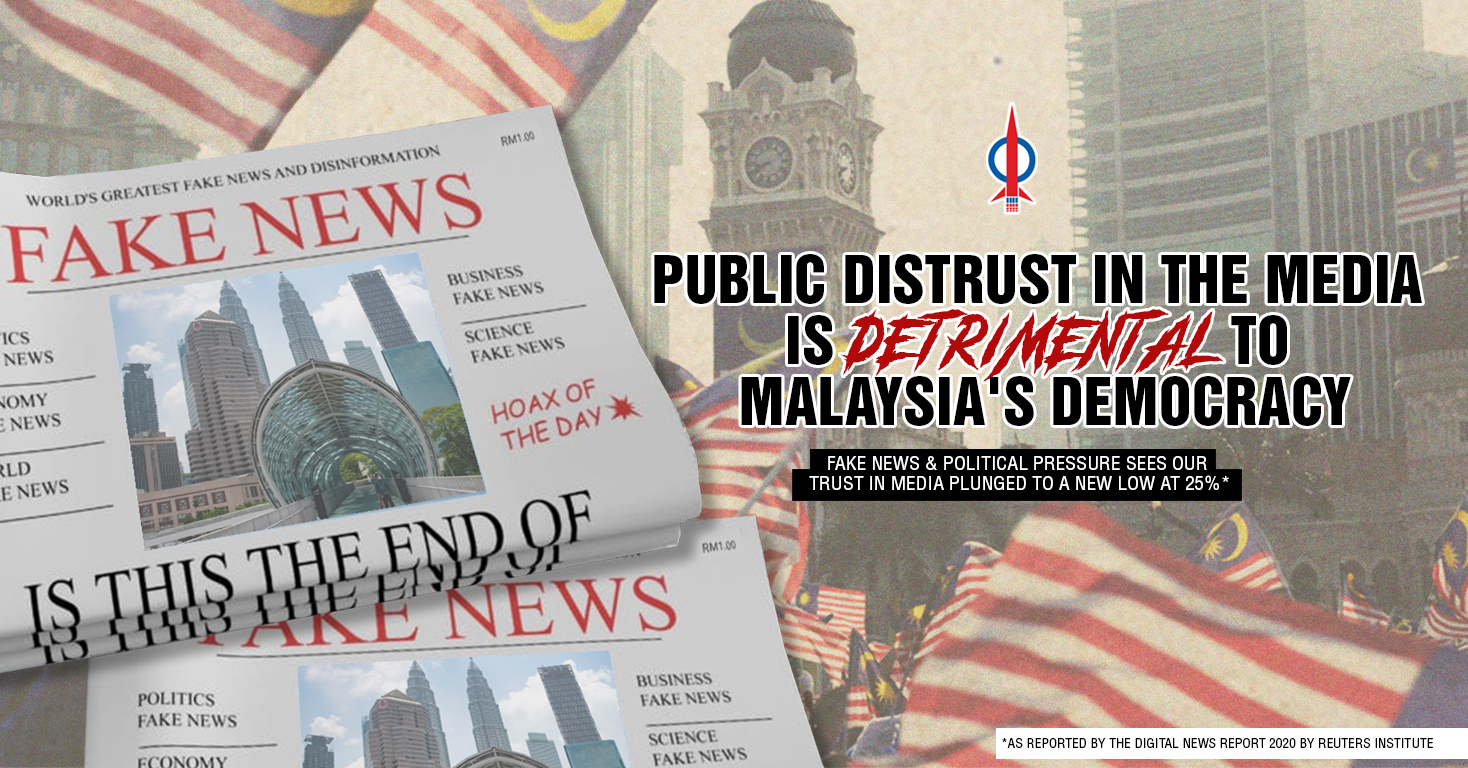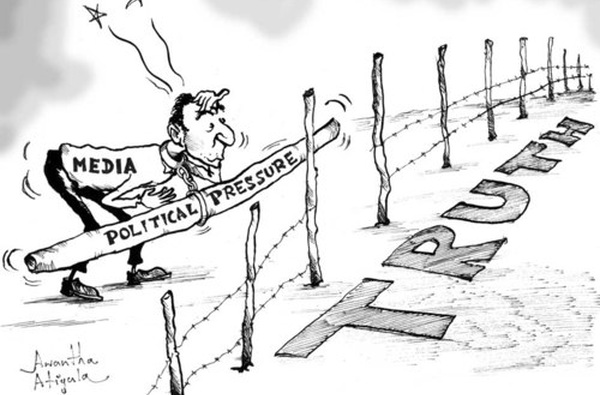
Media Statement by Member of Parliament for Kluang on
25th June 2020 (Thursday):
Malaysians’ trust in the media plunged to a new low at 25%, according to the Digital News Report 2020 by Reuters Institute. This is an alarming signal to all stakeholders, including media practitioners, and the government.
The destruction of trust in the media is bad for democracy which thrives on the public getting constant, independent, and reliable information to take part in public life. On the contrary, authoritarian regimes delight in the public’s distrust of the media. Without an influential and independent media providing insights into government and other public issues, the people will not be able to properly check on their government.
In the latest Digital News Report, the trust Malaysians have in most of the news and media has plunged from 31% last year to 25% in 2020. Only one fourth surveyed believed in the news they read or watched. Overall Malaysia’s ranking has dropped to the fourth bottom among all the countries surveyed.

It is important to note that, since Reuters Institute started to cover Malaysia in the report in 2017, we have always been ranked somewhere at the bottom of the class. Regardless of how many countries being surveyed between 2017 and 2020, Malaysia had always been ranked fourth from the bottom in the list except in 2019 when there was a slight improvement in ranking.
The low ranking is indeed a dire warning to the Malaysian media. It is not an understatement to say that our media credibility is on the brink of being perished. There are many factors contributing to this problem and we cannot let them go unresolved lest they in turn jeopardize our democracy.
The root cause of this problem is clear, the proliferation of disinformation and fake news creates a net of confusion in media consumption. The public does not know true news from fake news, which news source is reliable and generally who to trust anymore.
The problem is exasperated by mainstream media companies succumbing to either business or political pressure and starting to behave like “click-bait” content farms, or worse, government propaganda machine.

The plunge in media credibility will adversely impact all sectors. Without some kind of public trust in the major sources of public information, we will eventually have lower trust in government, institutions, companies and even one another. Collectively, we may tragically end up being a trust deficit society.
To break this vicious cycle of distrust, and for the media to regain their credibility; the government, civil society and media practitioners must work together.
Firstly, there must be a widespread media literacy programme.
To put it briefly, the public must be educated on how to conveniently access and critically assess the media. Media literacy programmes can be taught in schools or even driven by civil society. When media consumers wise up against misinformation and disinformation, the demand for quality media will increase.
Secondly, media independence must be safeguarded.
In this aspect, the media council which was set up by the former Pakatan Harapan government earlier this year should be revived to play its role as guardian of media independence in this country. The government must take its hand off media and must not reduce media into its political mouthpiece serving the interest of the government alone. In fact, the media as the fourth estate must be allowed to play a critical role in the development of democracy and nation building in this country.

Finally, there must be legislation not only to punish fake news offenders, but to safeguard the survival of credible media.
Unfair online competition together with the growth of click-bait content farms diminished the quality of investigative journalism and in order to survive, many conventional media had to cut down proper journalism replacing it with poorly researched, bit-sized, but highly consumable style of reporting. The government can incentivise good media companies through tax measures, for example reducing corporate tax on certain types of media outlets, tax exemptions to encourage media subscriptions so that quality contents are properly compensated etc.
The Digital News Report 2020 has a persistent and recurring alarm since 2017 on public distrust of the media in Malaysia. The government must therefore heed the warning seriously, and take the necessary action before it is too late.
Wong Shu Qi,
Member of Parliament for Kluang.



